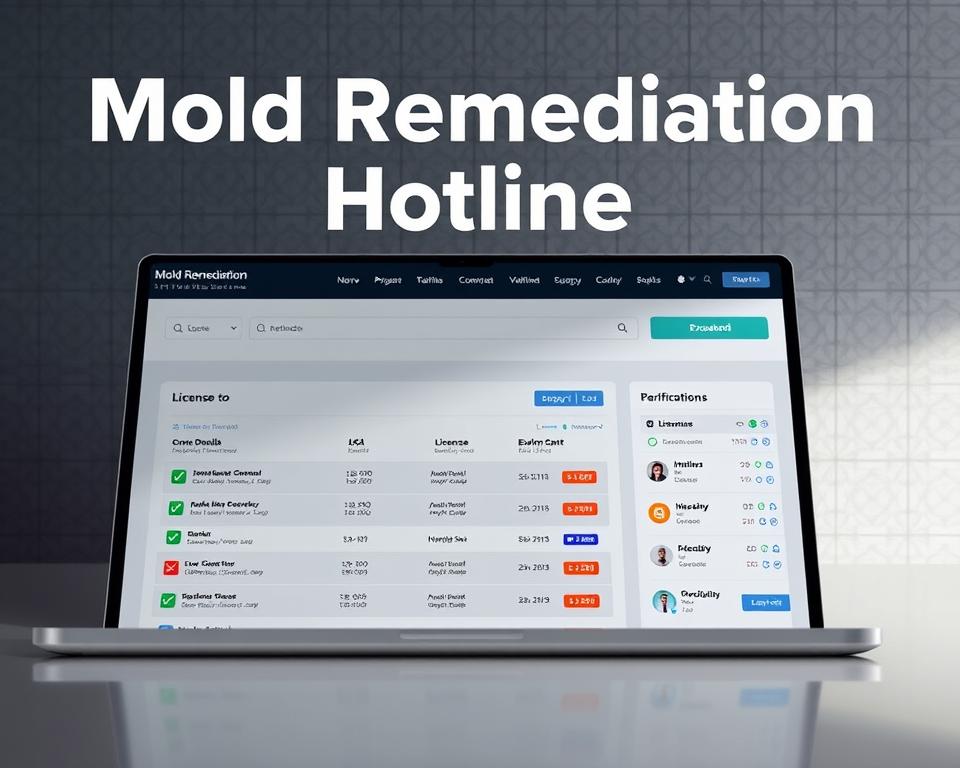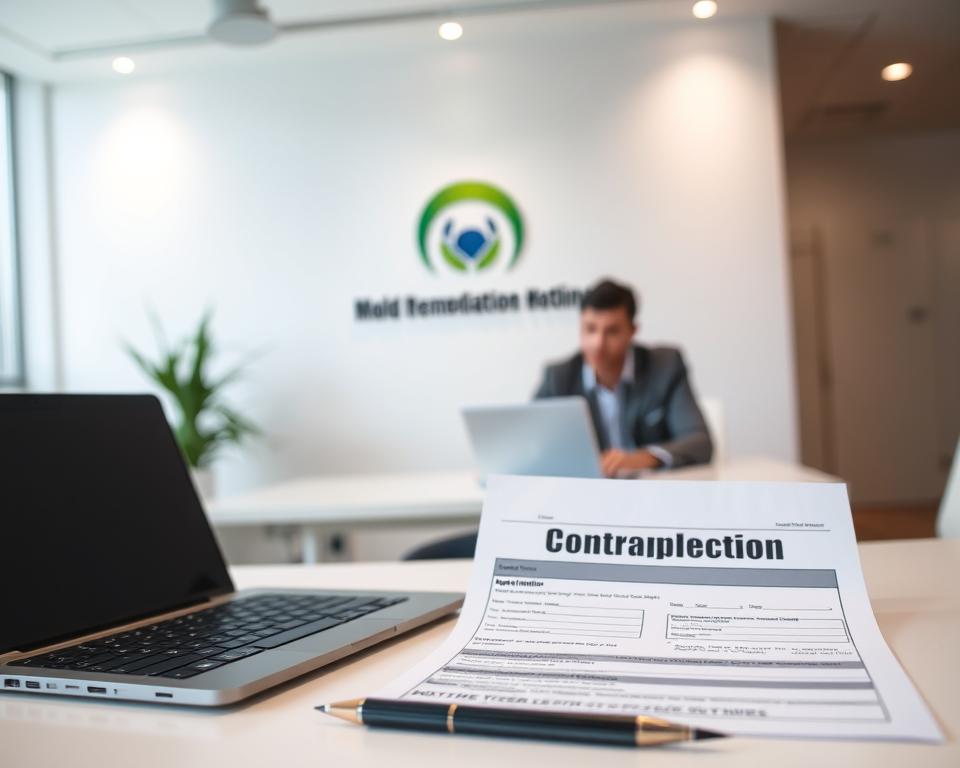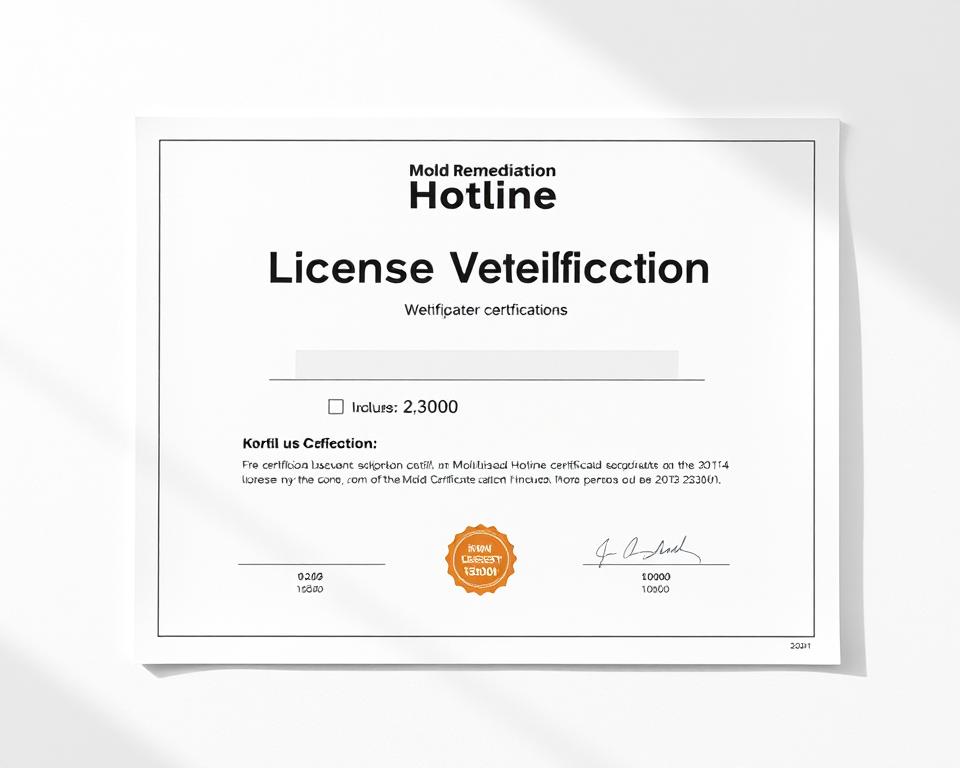Over 30% of homeowners who skip credential checks for air quality specialists later face repair costs exceeding $5,000. State programs like New York’s Article 32 framework set strict standards for professionals handling environmental hazards, requiring specialized training and government approval.
Modern verification systems transform how property owners protect their investments. Platforms like Maryland’s Home Improvement Commission portal allow instant confirmation of specialist qualifications. These digital resources display active credentials, disciplinary history, and legal standing – critical details when dealing with sensitive environmental concerns.
Regulatory approaches vary widely across state lines. Illinois combines multiple specialty categories into single search tools, while New York maintains separate requirements for assessment and containment experts. This patchwork system makes digital verification essential for confirming compliance with local laws.
Key Takeaways
- State-approved portals offer real-time validation of specialist qualifications
- Digital systems reduce verification time from days to minutes
- Regulatory standards differ significantly between states
- Active credential checks prevent legal and financial risks
- Official government websites provide the most reliable records
Property owners now have unprecedented access to official records through mobile-friendly platforms. These tools help avoid costly mistakes by ensuring specialists meet current safety protocols and insurance requirements before work begins.
Understanding the Mold Licensing Landscape
Navigating environmental service regulations requires understanding how states structure their approval processes. Complex frameworks protect homeowners while ensuring specialists meet strict operational criteria.
Overview of Regulations and Standards
State programs establish distinct rules for handling environmental hazards. New York mandates separate teams for property evaluations and containment work, preventing conflicts of interest. Maryland recently updated insurance rules, requiring $500,000 coverage for home improvement contractors by June 2024.
Key Contractor Qualifications
Professionals must complete state-specific training before offering services. Requirements include:
- Approved safety certification programs
- Documented equipment protocols
- Financial safeguards like guaranty funds
Enforcement agencies conduct surprise inspections and review project paperwork. Illinois combines multiple specialty approvals into single credentials, while Florida maintains separate categories for assessment and containment work.
Mold Remediation License Lookup Tool: Features and Benefits
Digital verification systems now simplify credential checks for environmental specialists. These platforms combine critical data points with intuitive design, helping users make informed decisions quickly.

User-Friendly Interface and Navigation
Modern systems like New York’s MPWR platform let users search by name, number, or location. Filters narrow results by specialization or service area. Mobile-responsive designs work seamlessly on phones during contractor meetings.
Illinois’ tools update daily, showing current credentials and insurance details. Integrated state databases eliminate outdated records. Features include:
- One-click complaint filing
- Printable verification reports
- Email alerts for credential changes
Instant License Verification and Real-Time Updates
State portals now provide live data feeds to ensure accuracy. New York’s system processes payments and documents while updating application progress. Illinois offers bulk checks for property managers handling multiple projects.
| Feature | New York MPWR | Illinois IDFPR |
|---|---|---|
| Search Methods | 4 options | 3 filters |
| Update Frequency | Real-time | Daily |
| Mobile Access | Full | Partial |
| Bulk Checks | No | Weekly |
These tools reduce verification time from hours to seconds. Always confirm credentials through official government websites for legal protection.
Tips for Navigating Licensing, Applications, and Compliance
Managing credentials requires strategic planning as state requirements evolve. Recent changes in New York and Maryland highlight the importance of understanding fee adjustments and documentation deadlines.

Streamlining the Application Process
New York now offers separate applications for individuals and businesses. Key updates include:
- No fees for supervisor credentials
- 90-day renewal window before expiration
- Digital uploads for insurance proofs
Maryland’s revised fee structure takes effect August 2024. Contractors face $175 renewal charges plus guaranty fund payments. Use this comparison to plan budgets:
| Requirement | New York | Maryland |
|---|---|---|
| Application Fee | $0 | $100 |
| Renewal Cycle | 2 years | 1 year |
| Training Hours | 24 | 16 |
Ensuring Ongoing Compliance and Quality Standards
Maryland’s guaranty fund covers up to $30,000 for homeowner losses. Contractors must:
- Complete annual safety courses
- Update equipment certifications
- Respond to complaints within 5 days
Track regulatory changes through state portals. Set calendar reminders for renewal deadlines and fund assessments. Proper documentation protects your business during inspections.
Conclusion
Protecting your home starts with verifying contractor credentials through state-approved channels. State-sponsored verification systems offer homeowners instant access to critical details like insurance status and complaint history. These official portals remain the gold standard for confirming compliance with evolving safety regulations.
New York residents can contact the Department of Labor’s License Unit at (518) 457-2735 for credential questions. Maryland’s Home Improvement Commission provides email support through DLOPLMHIC-LABOR@maryland.gov. Illinois maintains separate databases for real estate and financial professionals, ensuring specialized oversight.
Digital access to contractor information empowers property owners to make informed decisions. Always cross-check credentials directly through government platforms before hiring. This simple step prevents legal issues and ensures work meets current quality standards.
Investing time in proper verification protects both your home and health. Official tools eliminate guesswork while maintaining transparency in the contractor selection process.
